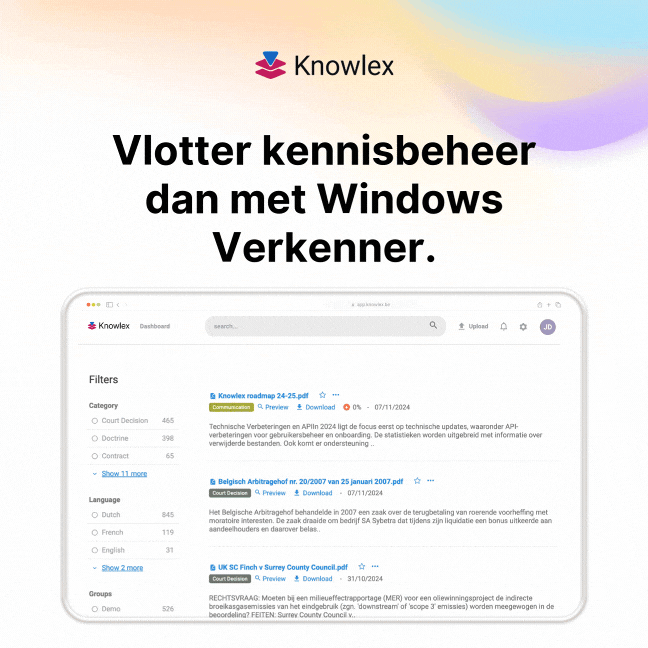Voorwoord
Tijdschrift Beleggingsfiscaliteit heeft onder meer tot doel om u systematisch fiscaal wegwijs te maken in de fiscale behandeling van beleggingsproducten uit België en de omliggende landen, alsook met nieuwe wetgevende evoluties in de beleggingsfiscaliteit, met inbegrip van corporate actions.
In dit meest recente nummer zijn we meer dan grensoverschrijdend! Zoals Christoffel Columbus steken we de oceaan over om de fiscale evolutie in de Verenigde Staten van Amerika te ontdekken.
Vele vermogensbeheerders worden geconfronteerd met tal van vragen en onzekerheden wanneer zij US klanten voor zich hebben. Dit nummer wordt dan ook helemaal besteed aan de belangrijke fiscale hervorming die men eind 2017 in de US heeft gestemd. Het gaat hier over de meest verreikende hervorming sinds 1986.
In het onderstaande, ingekorte artikel (Engelstalig) bespreekt Bruce Zagaris onder meer de verplichtingen die US citizens hebben wanneer zij rekeningen in het buitenland, waaronder België, Luxemburg, Zwitserland, … aanhouden en wat de fiscale gevolgen zijn mochten zij afstand doen van hun Amerikaanse nationaliteit.
Het volledige artikel is te lezen in het recentste nummer van Tijdschrift Beleggingsfiscaliteit. Voor meer informatie over het tijdschrift, klik hier.
Ik wens u veel leesgenot!
Dirk Coveliers, hoofdredacteur
FATCA, FBARS, AND OVDs FOR EUROPEAN WEALTH MANAGEMENT PROFESSIONALS
This article discusses some of the major initiatives that have been part of the United States government’s international tax compliance and enforcement efforts, particularly the Foreign Account Tax Compliance Act (FATCA), Foreign Bank Account Reports (FBARs), and the Offshore Voluntary Disclosure Program (OVDI). The article also discusses other reporting requirements, and the way forward.
In March 2010, the U.S. Congress enacted the Foreign Account Tax Compliance Act (FATCA). FATCA responds to U.S. tax non-compliance by providing enhanced transparency with respect to assets and investments held by U.S. persons outside the U.S. Its purpose is to guarantee that U.S. persons with financial assets outside the U.S. declare their income and assets. The law is very complex and important for financial institutions and other foreign businesses and individuals. The IRS has issued voluminous technical guidance on FATCA.
FATCA requires “foreign financial institutions” (FFIs) and other foreign entities receiving payments from U.S. sources to develop due diligence programs to identify U.S. account holders and report information with respect to their accounts annually to the IRS. FATCA requires U.S. Withholding Agents to withhold 30% on U.S. sourced payments and payments subject to Pass Thru withholding to foreign institutions/entities that do not comply.
FFIs must obtain information concerning each accountholder held by the FFI to determine which accounts are U.S. accounts and comply with the IRS’s due diligence and verification procedures. In addition to annually reporting information with respect to any U.S. account held at the FII, the FFI must deduct and withhold 30% of any “pass thru payment” to a “recalcitrant account holder” or to an FFI not subject to any agreement (or which elects to be withheld on). The FFI must comply with IRS information requests. If the FFI’s domestic law prohibits the FFI from reporting the required information, the FFI must either obtain a waiver of such prohibition or close the account.
In order to overcome the problem of potential violation with foreign constitutional and other laws, the U.S. has concluded Intergovernmental Agreements (IGAs). IGAs are mini-tax information exchange agreements which apply to FATCA implementation.
On May 15, 2018, Valere Moutarlier, the EU’s head of direct taxation, told a new European Parliament tax investigative committee that if the U.S. does not conform FATCA to the Common Reporting Standard by June 2019, the EU should put the U.S. on its tax blacklist. A report for the PETI Committee of the European Parliament on FATCA states that FATCA amounts to the unilateral exercise of extraterritorial legislative jurisdiction in most cases not based on reciprocity, triggering systemic conflicts with the General Data Protection Regulation (GDPR) and undermining the multilateral systems of automatic exchange of information envisaged by the U.S., the EU, and the international community at the time the U.S. government proposed the IGAs.
In 1970, Congress enacted the Currency and Foreign Transactions Reporting Act, requiring that U.S. persons disclose information concerning records and reports on foreign financial agency transactions. This Act and the corresponding regulations require a U.S. person to file a FinCEN Form 114 (formerly called an FBAR) if that person has a financial interest in, or signature or other authority over, foreign financial accounts in which the aggregate value of these financial accounts exceeds $10,000 at any time during the calendar year.
A non-willful failure to file an FBAR is subject to a $10,000 fine, whereas a willful failure to file can incur a civil penalty of as much as 50% of the value of the foreign account, with no cap for each violation, per year. As a result, a person with a substantial undeclared foreign account may have a potential civil penalty for a multi-year, willful failure to file the FBAR that would take the balance of the entire account and even require the person to pay additional money. Since the IRS has started enforcing the FBAR requirements, significant litigation has ensued.
If a U.S. taxpayer has failed to report legal-source income he or she can make a voluntary disclosure [which was known as the Offshore Voluntary Disclosure Program (OVDP)] to avoid criminal sanctions for the failure to report the existence of, and income earned on, foreign account on the income or estate tax returns, as well as for the non-filing of the FinCEN 114 (FBAR). Taxpayers who have failed to report all or part of their foreign income may avoid such liability by making a disclosure before the IRS or any other U.S. government agency has information that would lead to discovery of the criminal misconduct. Such a disclosure must be undertaken very carefully after detailed analysis of all the facts of an individual case.
In March 2009, the IRS started the OVDP, which has evolved and is ending September 28, 2018.
Streamlined filing compliance procedures are available to taxpayers certifying that their failure to report foreign financial assets and pay all taxes due in respect to those assets did not result from willful conduct on their part. The streamlined procedures are designed to provide taxpayers in such situations with a streamlined procedure for filing amended or delinquent returns and terms for resolving their tax and penalty obligations. Streamlined filers are subject to either no or a much lighter penalty regime and must file back tax returns for only three years, as compared to the eight years for which the due date has already passed and there was non-compliance for current OVD participants. However, they do not receive a closing agreement at the end of the filing, so they have less certainty about a final resolution.
Since the start of the OVDI, the IRS has warned taxpayers not to make “quiet disclosures,” which involves filing delinquent or amended tax returns, FBARs and other forms without undertaking the formal clearance process. The IRS has said it is looking for “quiet disclosures” for audit and for potential criminal prosecution. Still, quiet disclosures are an option for certain taxpayers, especially U.S. persons who have lived outside the U.S. for many years, who comply with their home country tax laws, and whose circumstances do not indicate criminal or fraudulent activity.
A myriad of other U.S. reporting requirements apply to cross-border situations, such as: the requirement to file a report when the individual knowingly transports more than $10,000 in monetary instruments, including currency, into or out of the U.S.; the requirement for a U.S. transferor of property to a foreign trust, or a U.S. recipient of a distribution of more than $100,000 from a Non-Resident Alien (NRA) or a foreign estate or from such a trust to file IRS Form 3520 or 3520A; the requirement for certain U.S. citizens and residents who are officers, directors, or shareholders in certain foreign corporations and meet the 10% stock ownership requirement file IRS Form 5471 and schedules to satisfy the reporting requirements of IRC, sections 6038 and 6046, and the related regulations.
Looking to the future, the U.S. is adrift on tax transparency, entity transparency, and international tax enforcement initiatives, compared to its prior leadership position on some of these issues.
Bruce Zagaris
Berliner Corcoran & Rowe L.L.P.
Meer informatie over Tijdschrift Beleggingsfiscaliteit kunt u vinden via deze link.
Want to read more? Subscribe to Tax Clicking through our webshop or download the printable form.





0 reacties